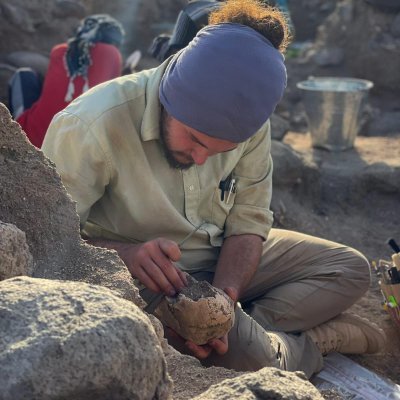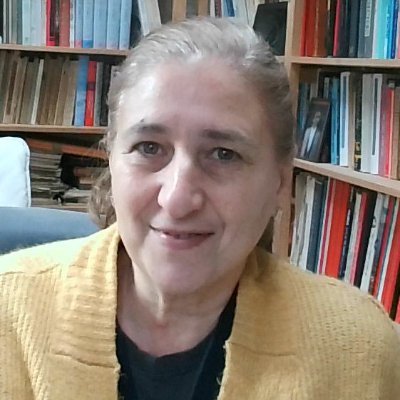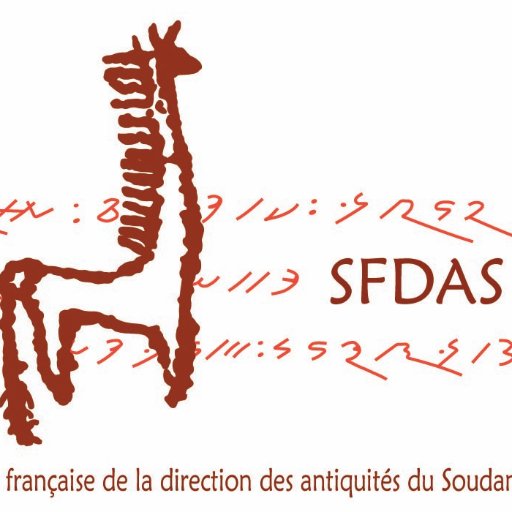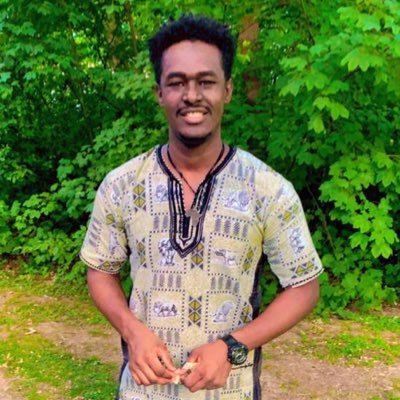
Nicolas Martin
@NclsMartin
Followers
120
Following
103
Media
12
Statuses
51
Biological anthropologist | PhD candidate @PACEA_bordeaux Studying settlement processes in the Nile Valley (early Holocene) | Dental anthropology
Bordeaux (France)
Joined May 2019
🚨14.000 years of population history revealed!🚨 What happened to the late prehistoric populations in the Nile Valley? Our new study uncovers major migrations, population replacement and regional mobility at the Neolithic transition! 1/6🧵 👇 https://t.co/xO7RGjDSBb
pnas.org
Transitions from foraging to food-production represent a worldwide turning point in recent human history. In the Middle Nile Valley this cultural s...
1
7
21
Today was the ceremony for new fellows at the @BritishAcademy_ - it was wonderful🤩. I am thrilled & so grateful to the colleagues who nominated & elected me, & the many colleagues, students, friends, our kids & family, & specially Rob who have so enriched my life and career ❤️
3
7
41
Open access alert! 📝 Our paper is now free to read. Take a look if you haven't yet:
pnas.org
Social institutions are systems of shared norms and rules that regulate people’s behaviors, often emerging without external enforcement. They provi...
🚨14.000 years of population history revealed!🚨 What happened to the late prehistoric populations in the Nile Valley? Our new study uncovers major migrations, population replacement and regional mobility at the Neolithic transition! 1/6🧵 👇 https://t.co/xO7RGjDSBb
0
0
0
Ravi de pouvoir présenter nos derniers résultats lors du prochain séminaire organisé par @ArcheoNil ! L'inscription est gratuite et l'événement aura lieu en ligne, alors n'hésitez pas à nous rejoindre pour parler de la vallée du Nil, de mouvements de population, et de dents 🦷🏜
📆 Our next lecture will be in French, on May 16th at 1 pm! It will be presented by Nicolas Martin. 📝 Register with the form ( https://t.co/E80KUJ84ly) or contact seminaire@archeonil.fr.
0
0
0
📆 Our next webinar will be on April 25th, at 1 pm ! It will be presented by Dr Ladislav Varadzin. 📝 Register with the form ( https://t.co/T8HESdrc4B) or by contacting seminaire@archeonil.fr.
0
2
8
A look at the enamel–dentine junctions of the teeth of ancient Egyptians suggests that foraging people were replaced by farmers during the 6th millennium BCE, rather than taking up farming themselves. Some foragers persisted in Sudan. In PNAS: https://t.co/GdhVPUIziZ
2
4
13
#RésultatScientifique🔎 Une étude menée par le laboratoire PACEA révèle des découvertes inédites sur le peuplement de l'Égypte et du Soudan, grâce à l'analyse de dents humaines vieilles de 4 000 à 18 000 ans. ▶️ https://t.co/OxBHheFwDI
0
3
5
@PACEA_Bordeaux @univbordeaux @CNRS @CNRSecologie @AgenceRecherche @UniKarlova @NCN_PL This work results from a long-term collaboration of researchers from international institutions and support by the local authorities. @univbordeaux, @britishmuseum, @UniKarlova, @narodnimuzeum, etc. Thanks so much to all co-authors! Including @ICrevecoeur, @lvmarechal
0
0
1
Want to read more about these exciting new data? Read the full paper here: https://t.co/xO7RGjDSBb 📃 @PACEA_Bordeaux This research was funded by @univbordeaux, @CNRS, @CNRSecologie, @AgenceRecherche, @UniKarlova, Czech Science fondation, @NCN_PL 6/6
pnas.org
Transitions from foraging to food-production represent a worldwide turning point in recent human history. In the Middle Nile Valley this cultural s...
1
0
1
We also discovered evidence of mobility along the Wadi Howar river during the mid-Holocene: Individuals from the desert show a "Nilotic-like" signal, while some from Southern Dongola (along the Nile) show a forager/desert-like ancestry, suggesting regional exchanges.🚶♂️🚶♀️ 5/6
1
0
1
While this new food-producing population replaced the hunter-gatherers along the Nile, we identified a forager-related population in the Eastern Sahara. This suggests that Neolithic newcomers did not extend further into the desert margins and settled along the Nile only. 4/6
1
0
2
We found significant morphological differences between the last foragers and first food-producers. Considering the high phylogenetic signal of the EDJ, this provides clear evidence of biological discontinuity and migrations towards the valley at the Neolithic transition 🔄 3/6
1
0
1
We analyzed the enamel-dentine junction (EDJ) -a highly reliable proxy for population affinities- of 88 individuals from Late Pleistocene to mid-Holocene sites in Sudan and Southern Egypt. We focused on the first and second upper molars of these individuals. 🦷 2/6
1
0
1
SFDAS is starting the year strong and hosting it’s 4th conference this thursday at IFAO.
1
6
12
This session is organized by @lvmarechal, A. Gomes and myself. The deadline for submission is on Jan. 31st Don't forget to select the session title if you want to be associated with this one ! Don't hesitate to share this with your network and/or contact us for more details
0
0
0
The call for papers for the next #SAfA2025 in Faro is now open! Interested in climate change in Africa and how past populations coped with it? Submit an abstract for our session "Climate change and human responses in past African societies: Lessons for a changing world" !
1
1
4
As always, all of this results from an amazing collab. with international institutions and researchers. Among whom @ICrevecoeur @lvmarechal @clementzanolli @PACEA_Bordeaux @univbordeaux @CNRSAquitaine @sfdaskhartoum @CharlesUniPRG @britishmuseum and many others
0
0
2
The last weeks have been so intense and exciting! With a presentation of our latest results on the #NileValley #prehistoric pop. history at #EAA2024 and a poster on a new biol. affinities approach at #ESHE2024. Stay tuned for upcoming projects/results on this amazing material
1
0
24
Our poster is up at #ESHE2024 ! See you in the main conference room at 17:00 to talk about upper incisors EDJ shape as proxy for biological affinities! 🦷 @PACEA_Bordeaux @univbordeaux
0
4
30








